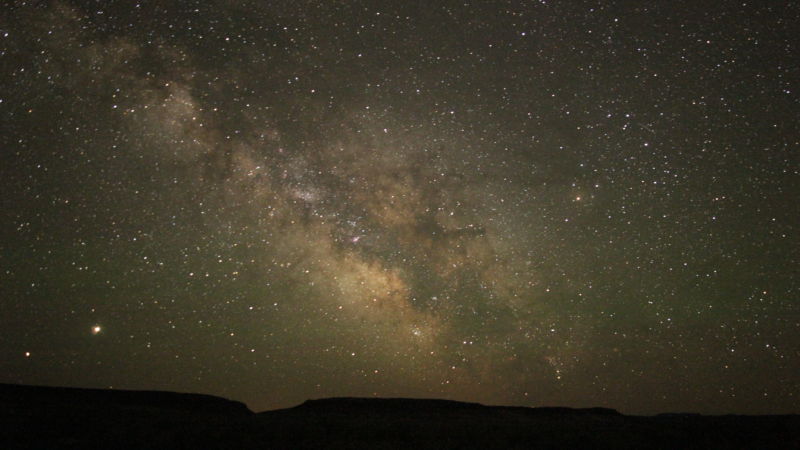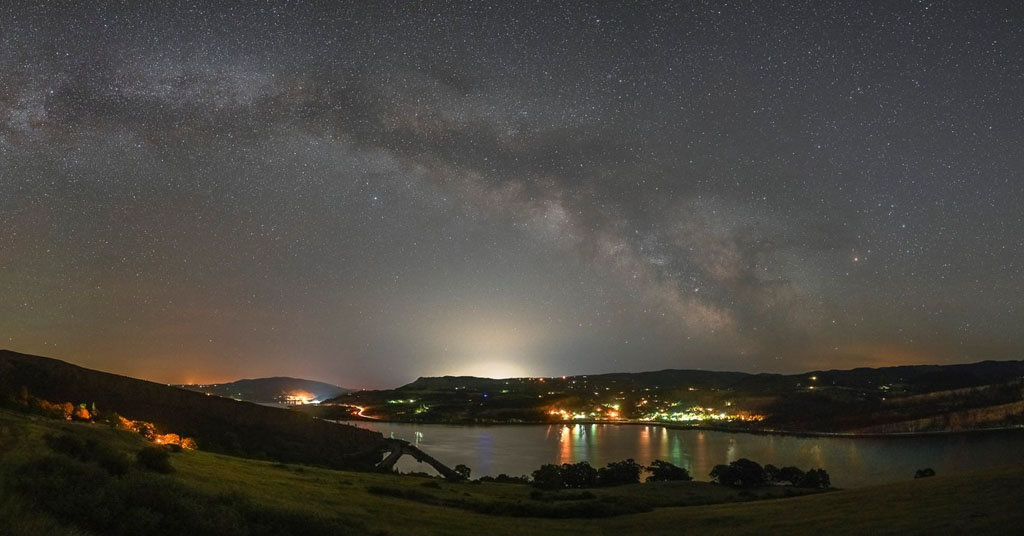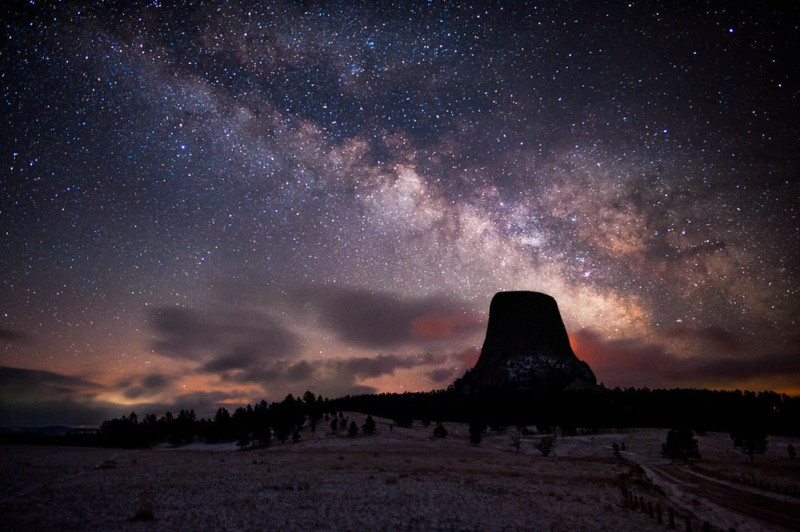In an Oregon first, stargazing east of the Cascades draws special designation from the International Dark-Sky Association. What took so long?

Easy to recognize: Night skies east of the Cascades are about as good as they get. Now it’s official. Photo by Chris Stewart
By Zack Demars of The Bulletin, August 7, 2020. If you had to recognize one place in Oregon for its dark nights, you wouldn’t think to start with a town named after the sun.
On Monday, the International Dark-Sky Association announced its designation of Sunriver as a Dark Sky Friendly Development of Distinction, one of over 130 across the world and the first in Oregon.
The group’s distinction doesn’t have a legal effect, but it means Sunriver has the right rules and regulations in place to prevent street and house lights from polluting the night sky with light.
“Sunriver has been able to protect the night sky and still have lights,” said Bob Grossfeld, the observatory director at the Sunriver Nature Center & Oregon Observatory, who spearheaded the effort to get the town listed by the association.
Polite light
Based in Tucson, Arizona, the International Dark-Sky Association works to reduce light pollution—that’s the glow from artificial light sources that renders nighttime stars invisible and can disrupt nocturnal ecosystems—through education and advocacy.
It encourages communities to adopt policies that keep unnecessary light out of the sky. Sunriver, for example, prohibits house or building lights from facing up or out and requires that all exterior lighting be shielded to eliminate glare.
“The key is that Sunriver, in the early stages of development, they kind of got it,” said Grossfeld. “They understood how to protect nature; they understood how to protect the night sky.”
MORE ON CI: EVs in Eastern Oregon?
According to Bill Kowalik, board chair of the Oregon chapter of the International Dark-Sky Association, the designation recognizes the planning that Sunriver has put into protecting the night sky.
He encourages people interested in reducing their light pollution to check out the “Good Light Neighbor” self-assessment, which includes making sure that lights are pointed down and light doesn’t “trespass” onto neighboring property. He also recommends using motion sensors instead of keeping lights on all the time.
“Perhaps people will think twice before going overboard with lights,” said Kowalik.
In 2018, a volunteer group lobbied the city of Bend for more restrictive light ordinances so that Bend could be designated by the International Dark-Sky Association.
City law already requires every outdoor lighting fixture installed since 2004 to direct light downward. It also bans advertising searchlights, requires sports stadiums and performance areas to extinguish outdoor lights within an hour of the final event of a night ends and prohibits most neon lighting.
To become recognized for its darkness, Bend would also have to restrict the total amount of unshielded lighting, establish curfews or adaptive controls for public outdoor lights and cap lighting density.








